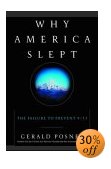|
| Home | About Kashmir Herald | |
Volume 3, No. 11 - May 2004 |
|
|
|
Blind Old Men of Hindustan The strategic world has received a big shock from the recent utterances and writings of India’s ‘super hawk’ realist scholar and practitioner, Bharat Karnad. Karnad, who was involved in putting together India’s Draft Nuclear Doctrine, had been advocating India as a potent nuclear weapon state for decades before the 1999 Pokhran II tests. In his latest salvos, Karnad has indicated the harsh reality that India’s long-term threats come from China and the US. Some of this comments are worth quoting: "The more substantive danger to India is from the US' insistence that the Indian deterrent be kept at a sub-operational level which if resisted or ignored by New Delhi could lead to Washington's contemplating a disarming first strike…Its own great power ambition will compel India to acquire a genuinely potent thermonuclear force with high-yield weapons and inter-continental reach as a deterrent and insurance against any great power machinations." One of the milder criticisms that India faced during the immediate fall-out of the Pokhran II blasts was the ambiguous and weak definition of what a credible minimum deterrent comprises. Karnad unambiguously clarified: “The deterrent force would feature high yield weapons which will be too large in number and diverse to be eliminated even by waves of disarming counter-force strikes unleashed by the most powerful country, and which will have sufficiently potent residual retaliatory capability to inhibit any attacker from attempting such pre-emption in the first place." What really jolted smug sentiments about growing Indo-US bonhomie was Karnad’s assessment that “the US could be deterred with a thermonuclear weapon which didn't need not be accurate. An intercontinental ballistic missile with a thermonuclear weapon would be deterrent enough.” To Karnad, the fact that the US and China have used Pakistan as a proxy to keep India’s expanding influence under a cap means that ultimately Pakistan is not a sovereign actor but an instrument of Great Powers. Those with foresight and long vision are therefore advised to look beyond the immediate nuisance on India’s northwest border. General S. Padmanabhan, the former Indian army chief, has authored an exciting new book with similar forward thinking, The Writing on the Wall. India Checkmates America in 2017. In the imaginary scenario of this work, India is able to hold its own against American threats after comprehensively defeating Pakistan in a blitzkrieg. The big question is whether this kind of scenario planning would be included in building a ‘strategic culture’ or will the words of these experts be blown away in a wave of complacency about Indo-US relations. Padmanabhan’s predecessor, General K. Sundarji, once talked of the Blind Men of Hindustan. With a projected 82-year-old Nero-like Prime Minister who has compulsive peace itches and deep deference for American wishes, Hindustan may be in for another critical lapse. |
 |
 |
 |
|
|
Archives
| Privacy Policy |
Copyrights
|
Contact
Us | |
||